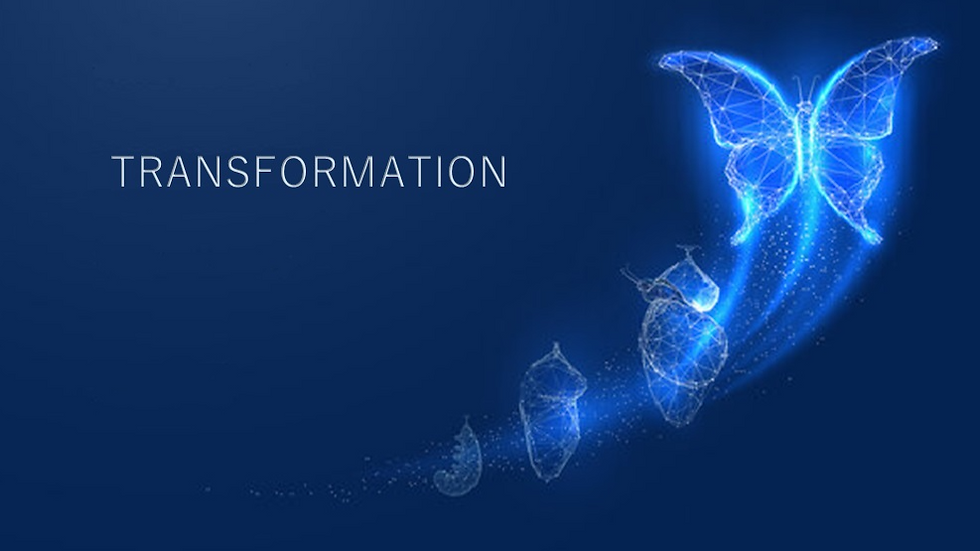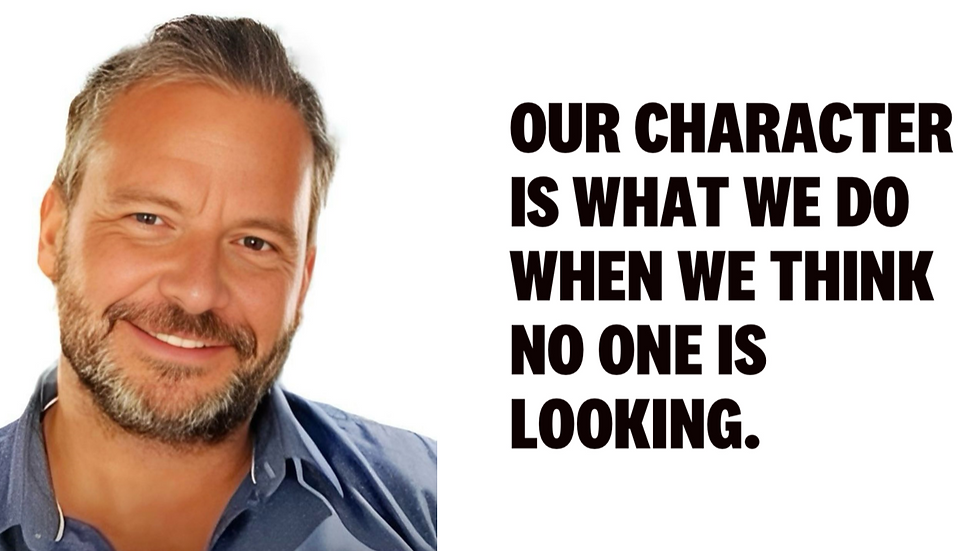Unlocking a transformational new era
- danbrown119
- Dec 24, 2025
- 6 min read

My work with C-Suite advisory boards and global transformation leaders is about more than titles, it's about trust and meaningful connection. It’s about engaging with the real challenges, aspirations, and outcomes that define commercial success, while also considering the legacy we leave by Doing Well and Doing Good.
This article is to give a measured sense of the general sentiment of the conversations that I am fortunate to have every day, and provide a basis for us to connect and deepen our collective thinking based on engaging debate and hard facts.
If this resonates, I would be honoured to speak with you and explore what transformational leadership means for your strategy and legacy.
I would also like to invite you to join me for an exciting new series of private dinners, leadership forums, peer roundtables, workshops and more, all designed to support growth, connection and legacy as we move into 2026.
Introduction: C-Suite communities around the world are stepping into a transformational new era. This era is no longer defined by the volume of information we hold, but by the quality of insight we create, the intelligence we embed, and the impact we deliver. Leaders today are not only navigating accelerating technological change, but they are also being called to lead with greater purpose, agility, regulatory diligence and societal responsibility. This paper explores how forward-thinking executives are meeting this moment and why transformational leadership is essential as we move toward 2026.

A shift in leadership priorities: In an era defined by rapid digital transformation, economic uncertainty, and rising expectations around social responsibility and sustainability, the role of transformational leaders has never been more pivotal or more personal. In this new era, digital capability and workforce optimisation are no longer "nice to haves" they are business critical. The challenges facing modern enterprises from AI integration and supply chain complexity to talent shortages and hybrid workforces demand more than operational fixes. They require bold, insight-led leadership that connects people, technology, and culture in meaningful, measurable ways. Leadership that is authentic, insightful and focused positive transformation.
There are so many in our networks holding senior roles across organisations committed to positive transformational change, people like Sir Ken Olisa OBE a man I admire greatly, a man who advocates for those with shared values working together to define a future that demands Doing Well and Doing Good are mutual imperatives, not some ideological fluffy concept.
This shift is being felt across every industry. Leaders are redefining their roles not just as decision-makers but as designers of systems that are intelligent, agile, and future-fit. Whether it’s building transformation strategies, next-gen capability pipelines, or ethical frameworks for emerging technologies like AI, the call is clear: lead with depth, align values with action, and create value that lasts.
At the centre of this vision is a simple but bold idea: Doing Well in Business and Doing Good in Society are not competing goals; they are mutually reinforcing imperatives.
There are now so many committed not just to optimising systems but reimagining leadership, creating legacy, and building communities that drive lasting change. Our interconnected networks of visionary business leaders are not only leading within their enterprises but shaping the future of industry and society alike.
Now more than ever enabling the right conversations with the right people, at the right time, is not just a communications strategy, it is leadership. It’s how transformation gains traction, how partnerships evolve into ecosystems, and how organisations build cultures that attract and retain world-class talent. And it is the basis of all my work and why I share my findings.
The rise of insight, intelligence, and impact: Information alone no longer drives competitive advantage. The winners of this new era will be those who can translate complexity into clarity, data into direction, and vision into enterprise-wide impact. Those leaders who can execute on this most effectively will surely be those most capable of demonstrating how they:
Harness insight to anticipate change, not just react to it
Embed intelligence into both operations and culture
Measure impact through outcomes, not just output
Lead to inspire, connect, and engage with humanity
This is especially true as AI becomes embedded across the enterprise. Responsible leaders are now considering not only how to deploy technology, but how to do so ethically, inclusively, and in service of broader societal good, while also supporting the needs of their people on a personal level by optimising the workforce through insight, intelligence driven by AI.
Legacy leadership in the age of acceleration: As we accelerate toward 2026, one of the most powerful shifts is the re-emergence of legacy as a leadership driver, forward-thinking executives are all asking deeper questions such as;
What are we really building?
Are we leaving behind stronger, smarter organisations?
Are we delivering more than just business outcomes?
What will our leadership be remembered for?
Legacy is no longer just about long-term profitability. It’s about contribution. It's about embedding purpose into strategy and ensuring that doing well in business means doing good in the world. From AI for good to sustainability-driven operations, today’s leaders are designing the future with conscience and courage.
Through deep, trusted relationships, curated communities, and strategic global alignments, we can all help create the bridges between boardroom decision-makers and the partners who can unlock shared value at scale. By combining elite access with grounded, values-based leadership, our partnership models can be positioned to shape the market, not just speak to the market. Every conversation and every connection must drive measured transformation.

The case for sustainability and leaving a Legacy through Leadership: Is sustainability still a core business priority? Absolutely yes it is, and the data proves it:
EcoVadis (July 2025): 87% of U.S. companies are increasing or maintaining sustainability budgets, viewing it as a competitive growth driver.
ISEP (July 2025): Fewer than 2% of organisations cut budgets, while over 40% increased spend as a clear signal of momentum.
Morgan Stanley (June 2025): 88% of companies see sustainability as a long-term value driver, with 80%+ tracking measurable ROI.
Forbes (April 2025): Nearly a third of executives rank sustainability first on the C-suite agenda; 89% plan to increase budgets.
PwC (March 2025): Products with sustainability attributes drive 6–25%+ more revenue; 37% of companies are ramping up climate ambition.
Deloitte (Sept 2024): 85% of organisations increased sustainability investments up from 75% in 2023.
The case for social mobility and societal impact: Just as sustainability has moved to the top of the corporate agenda, so too must social mobility and societal impact. Economic inclusion, equitable access to opportunity, and intentional community uplift are not side conversations, they are central to the future of business performance and public trust.
World Economic Forum (2025): 71% of CEOs say increasing socioeconomic diversity in leadership positively impacts decision-making and business growth.
McKinsey & Company (May 2025): Companies with top-quartile diversity performance are 36% more likely to outperform financially.
Accenture (2025): Inclusive organisations are 60% more likely to improve reputation and stakeholder engagement, especially in underserved markets.
OECD (April 2025): Enhancing social mobility can drive a 4–9% uplift in national GDP over time.
Business in the Community (UK, 2024): Companies with strong social mobility programmes see increased employee retention and talent pipeline depth.
The signal is clear: Sustainability isn’t just surviving its scaling. But we need to stay focused on execution, impact, and proving the value we know is there. Businesses that support social mobility don’t just create fairer systems they unlock talent, drive innovation, and build the resilience needed to thrive long term. This isn’t charity. It’s enlightened self-interest and where equity and performance walk hand in hand.
Sustainability and Social Mobility. A Shared Agenda: Both sustainability and social mobility represent the future of enterprise value. These agendas are not siloed; they are synergistic. The businesses that will lead in 2026 and beyond are those willing to invest in people and planet creating inclusive prosperity, shared value, and trusted systems that last.
A thought experiment to close
A little thought experiment then on Gratitude and Appreciation for all the blessings in our lives, and how the world’s definitions of winning and collective goals must change if humanity is to survive.
What do you think our ultimate collective goal is in life? a) making money, b) screwing the competition, c) avoiding regulators, d) delighting customers, e) supporting employees, f) making the world a better place for our families, ourselves, and others?
Would I accept £100m today if my life or those I love would end tomorrow? How about £1Bn? £100Bn? No of course not.
So let’s ask better questions. And let’s start the right conversation because insight without action is wasted, and legacy is only built when leadership meets the moment.
If this resonates, I would be honoured to speak with you and explore what transformational leadership means for your strategy and legacy.
My invitation to connect - All my work is with C-Suite advisory boards and global transformation leaders, not just understanding their titles, but engaging with their real challenges, aspirations, and outcomes.
I would love to share some of the insights I am seeing from across these leadership ecosystems, hear your perspective, and explore what transformational leadership means to you as you shape strategy and build capability into 2026 and beyond.
My deepest personal thanks and appreciation to everyone giving me their time and insights. I hope you find this a helpful as a collective reflection on such interesting conversations.




